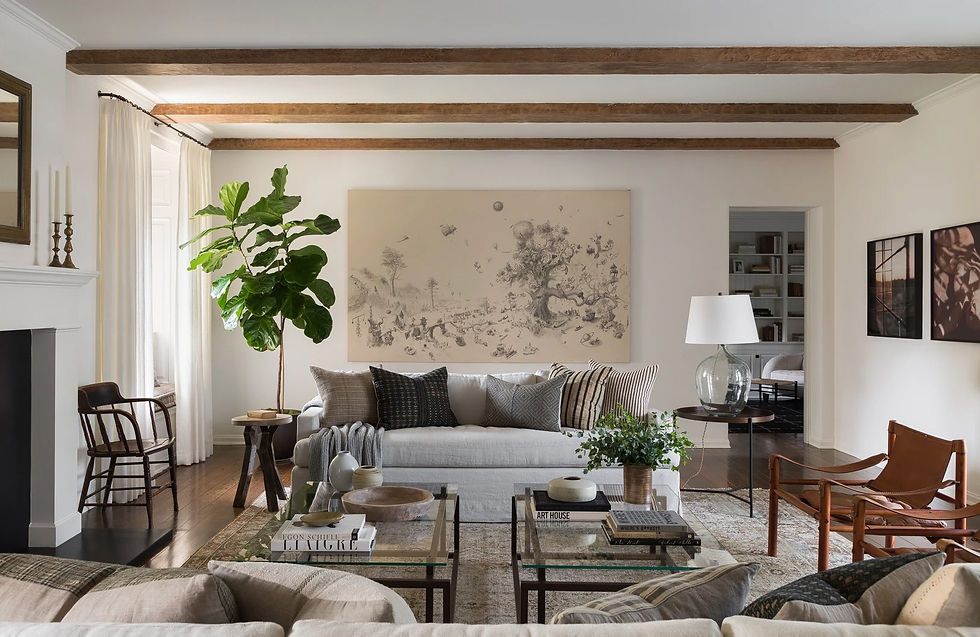Wellness by Design
- Gemma McDonnell
- Feb 22, 2023
- 2 min read
Updated: Sep 25, 2023
It makes sense that our homes, that is, the places we rest our heads at night and wake each morning, should be designed to support our daily routines and busy lifestyles. They're the places we gather at the end of a long day, the spaces we recharge and reset ourselves; mentally, physically and spiritually, too.
From prepping kids' lunch boxes and 'ushering' them out the front door each morning, to finding time for beauty routines before winding down for bed. Each and every space within our homes has the ability to affect how we feel and function, and equally it has the potential to enable us to flourish, if designed well.
As our lives evolve, our situations and family dynamics change, and so too should our homes. Planning and future-proofing are by far the most fundamental things to get right, yet so often they're skimmed over. The fact is, in-depth planning underpins how 'successful' your home design will be. Good design and flow will facilitate how you operate within it, reduce your stress levels when carrying out tasks, and generally make you feel more content and happy in your space. Until you truly analyse and dig down into how various designs will work for you, you'll see it's easy to skim over the details until it's too late.
Of course your comfort and having items of absolute joy play an enormous part in your wellbeing too. It's your connection to your home, the mood it evokes in you as well as what is says about your personality to others. Does your home represent you, or are you living with things that just don't align?
We're at an age where we're realising that the stuff we surround ourselves with really impacts our mental health as it burdens us, triggers us, even guilts us into holding onto it. Part of wellness design is simply being more present and mindful about what makes us happy, more holistic in our thinking with the home-health connection, and taking better care of ourselves and those closest to us.
Gemma x


